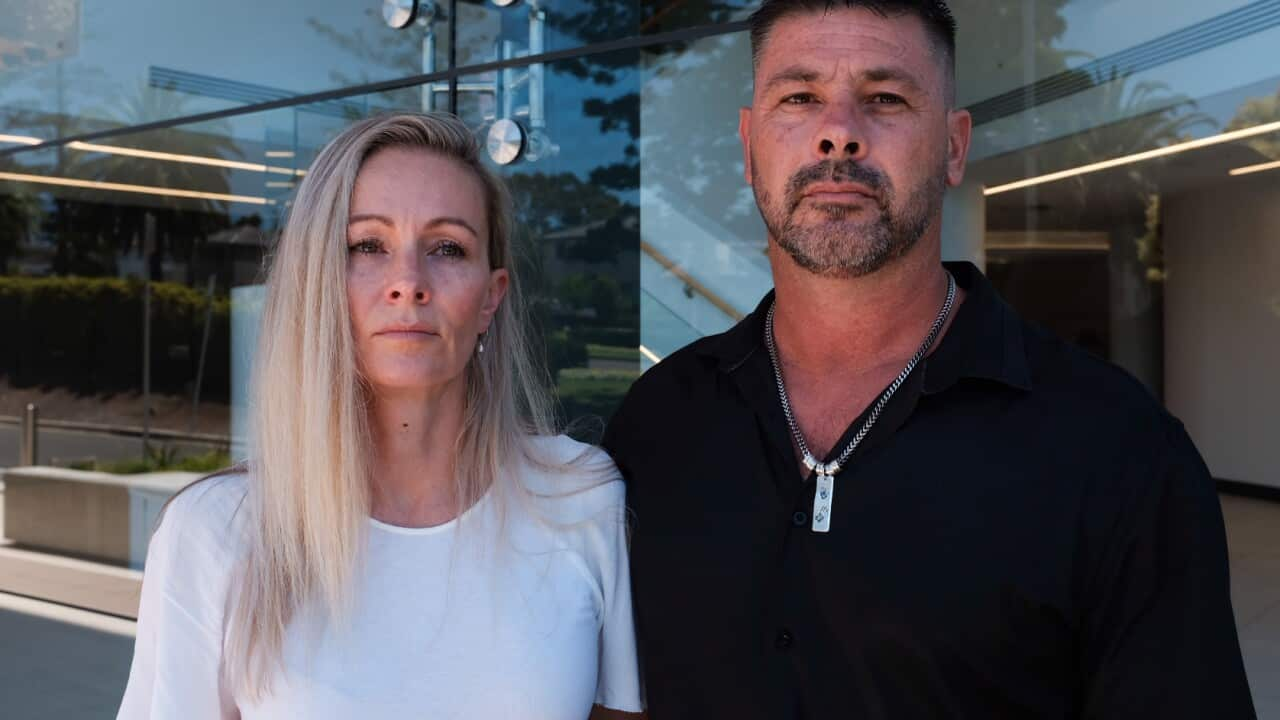A coroner has recommended Queensland Police use of a controversial neck hold be reviewed, following the inquest into the death of a 39-year-old Aboriginal man, known as Noombah.
The man died of a cardiac arrest after being restrained by police so they could take him to hospital for an 'emergency examination' in Townsville in 2018.
Police and ambulance officers had been responding to a call from Noombah's partner Regina Matheson, after he'd threatened to harm himself.
Noombah had a heart condition and had been sniffing petrol on the evening of his death.
During investigations it was revealed a police officer had used a hold on Noombah "'like the [lateral vascular neck restraint] LVNR', putting his arm around the neck/collarbone area of Noombah and dropping his weight to bring him to the ground and handcuff him."
'lawful, authorised and justified'
Coroner Terry Ryan said he accepts that the LVNR was not actually used on Noombah; the officer said this hold was not his intent, although that is how he described the restraint to investigators.
The investigation concluded that the actions by police in detaining Noombah "were lawful, authorised and justified".
Coroner Ryan accepted this conclusion, but recommended that the use of the controversial LVNR restraint by Queensland Police Service should be reviewed.
In his findings, State Coroner Ryan said Noombah's decline was "not identified until after he was placed in the ambulance vehicle, over eight minutes after paramedics arrived on the scene".
"...Paramedics failed to undertake any meaningful assessment of Noombah on the roadside," the findings said.
"It was also apparent that there was no urgency from police or paramedics in a situation where Noombah was critically unwell."
The care Noombah received from paramedics on the scene was described as "sub-optimal".
Confusion between Paramedics and Police
Coroner Ryan said there was confusion during the inquest as to whether Queensland Police Service (QPS) or Queensland Ambulance Service (QAS) has primary responsibility for the care of a person such as Noombah who was detained and handcuffed when both agencies were on the scene
He recommended that QPS instate a mandatory requirement for officers to request paramedics undertake a medical assessment when a person in custody rapidly changes from "heightened emotion and agitation" to "apparent compliance".
Noombah's family submitted to the inquest that Emergency Examination Authorities, like the one used to detain Noombah, do not work in a place like Townsville, because of the poor relationship between the First Nations community and police.
His family also expressed concern about the criminalisation of mental illness under these provisions.
The inquest also highlighted the need for culturally-appropriate responses for First Nations people experiencing mental illness.
The coroner recommended that the Queensland Government work with Townsville's Indigenous community, health services and Aboriginal community controlled organisations to develop culturally appropriate alternatives to hospital emergency departments for First Nations people experiencing mental illness.
Readers seeking support can contact Lifeline crisis support on 13 11 14, visit lifeline.org.au or find an Aboriginal Medical Service here. Resources for young Aboriginal and Torres Strait Islanders can be found at Headspace: Yarn Safe.










